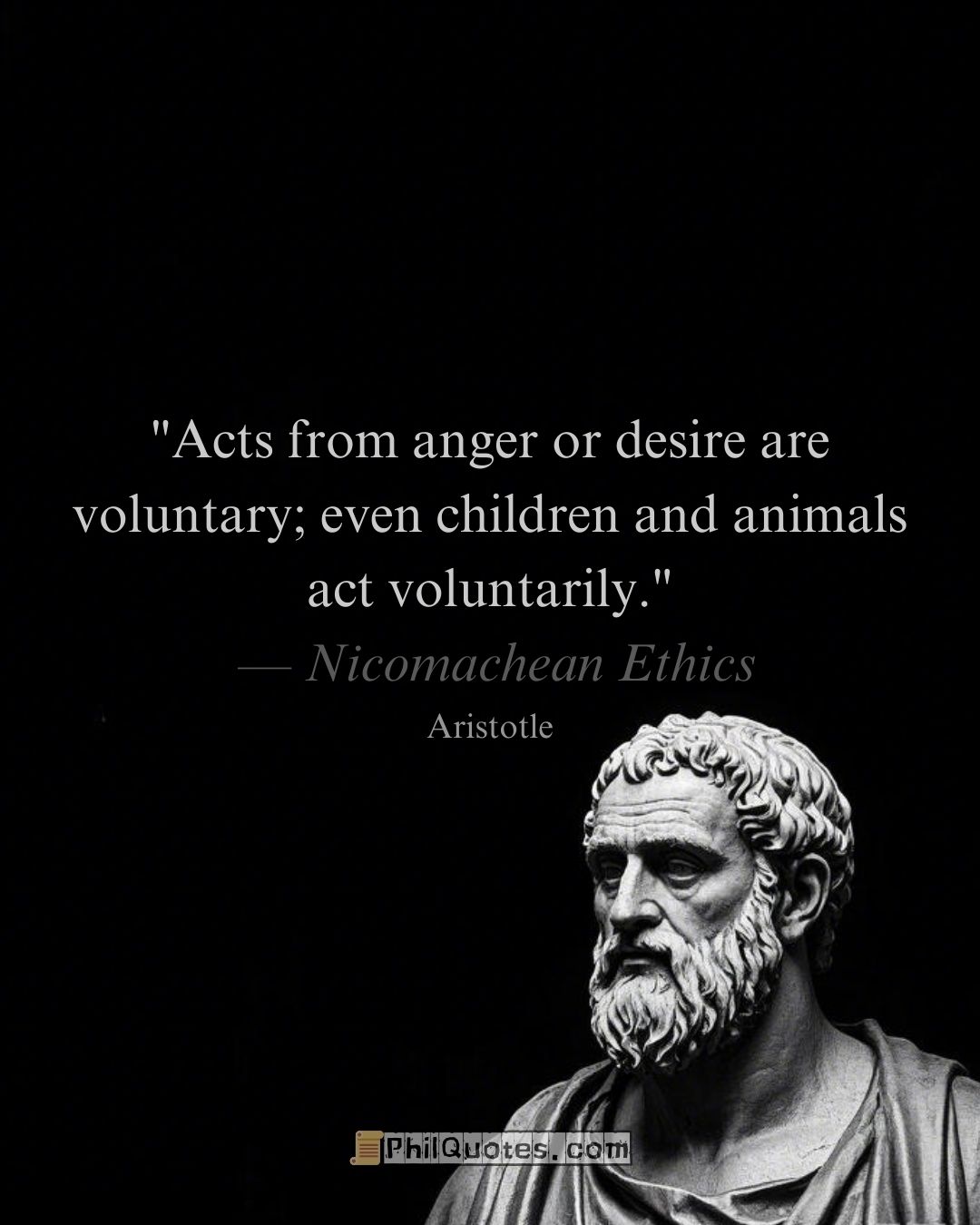
“Acts from anger or desire are voluntary; even children and animals act voluntarily.”
— Aristotle, Nicomachean Ethics, Book III, Chapter 1
(Translated by W.D. Ross)
The Big Idea
Emotions don’t excuse actions – they reveal your choices. Think of it like a video game:
- Your character gets mad and smashes a treasure chest 💥 → You pressed the button, so you lose loot points.
- Even NPCs (basic characters) make simple choices → Their “voluntary” acts are limited but real.
Real-Life Scenarios
🔥 Gamer Rage
Voluntary = You trash-talk after losing → Get banned → Your anger = your responsibility.
Involuntary = Your internet crashes mid-game → No blame.
🤝 Lunchroom Greed
Voluntary = You snatch the last cookie → Friends call you selfish (despite craving it).
Involuntary = The cookie falls into your hand → Laugh it off.
📱 Social Media Impulse
Voluntary = You post a clapback comment → Lose followers → Your desire for drama = your mess.
Try This Week
- Emotion Tracker
Write 3 times anger/desire drove your choices:- Example: “Yelled at my sister for borrowing my hoodie → My anger = my fault 😠”
- The “Pause Button” Drill
When feeling impulsive:- Snap a rubber band on your wrist → “Is this worth consequences?”
- Animal Instincts Check
Observe a pet’s choices (e.g., dog begging for treats) → Ask: “If even animals ‘choose,’ how much more should I control my actions?”